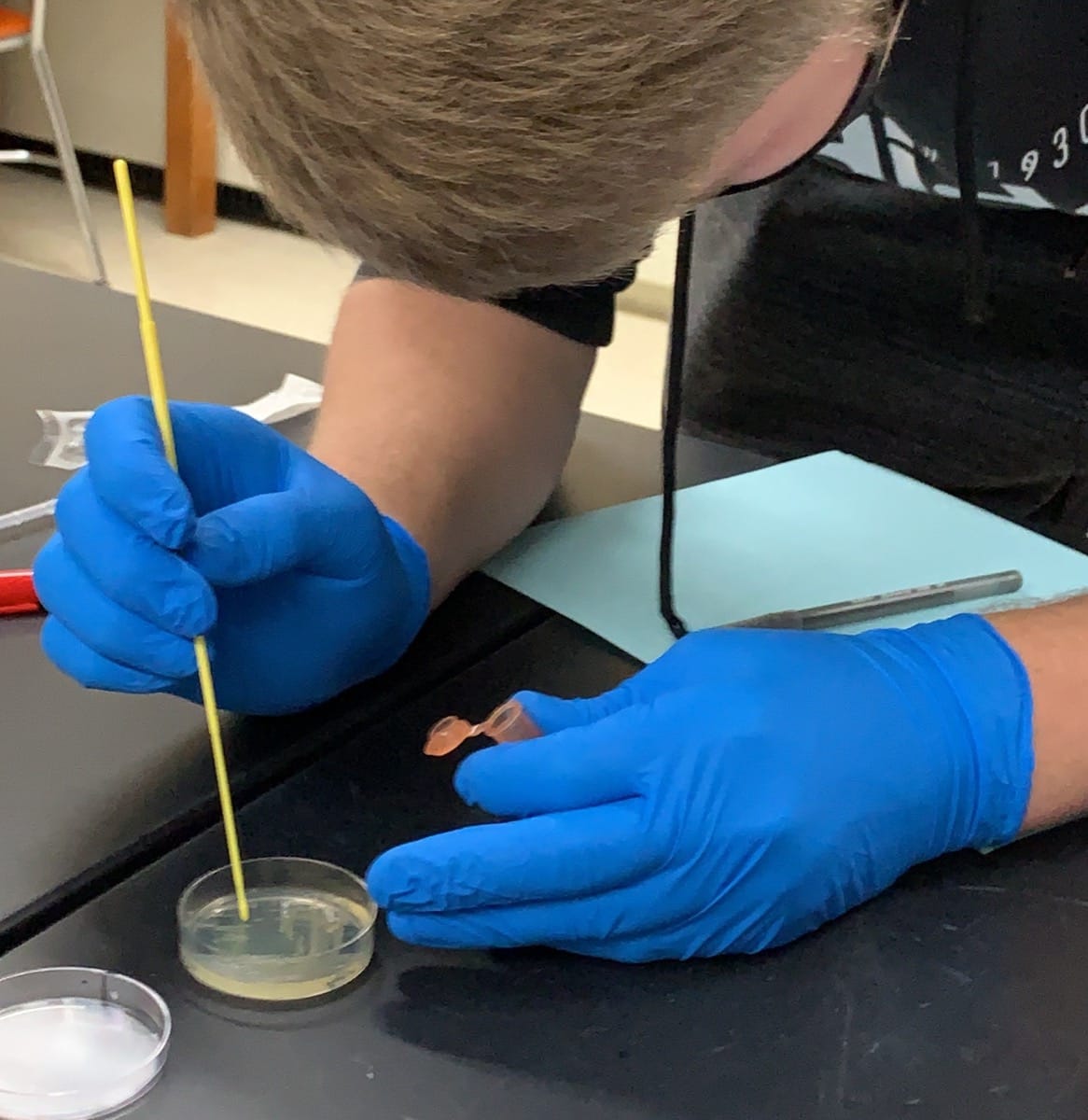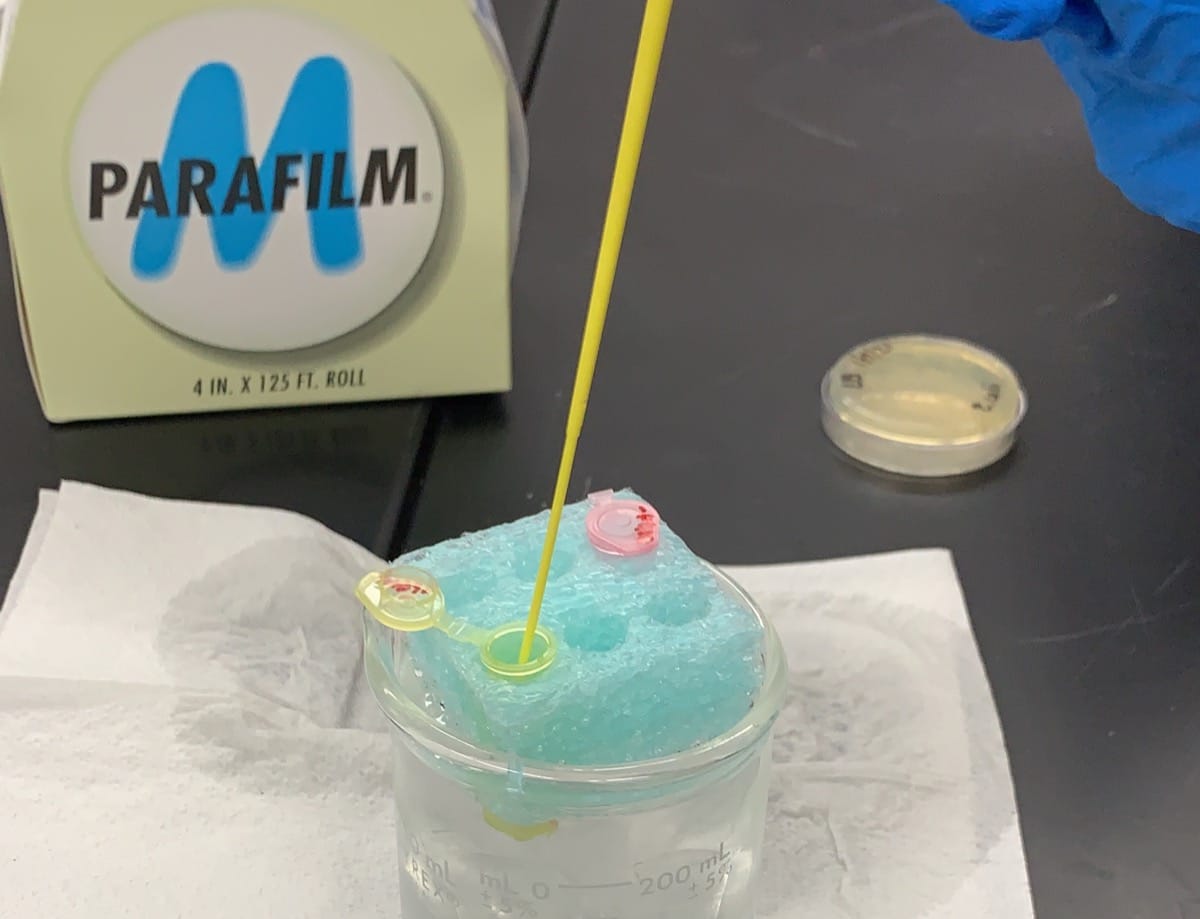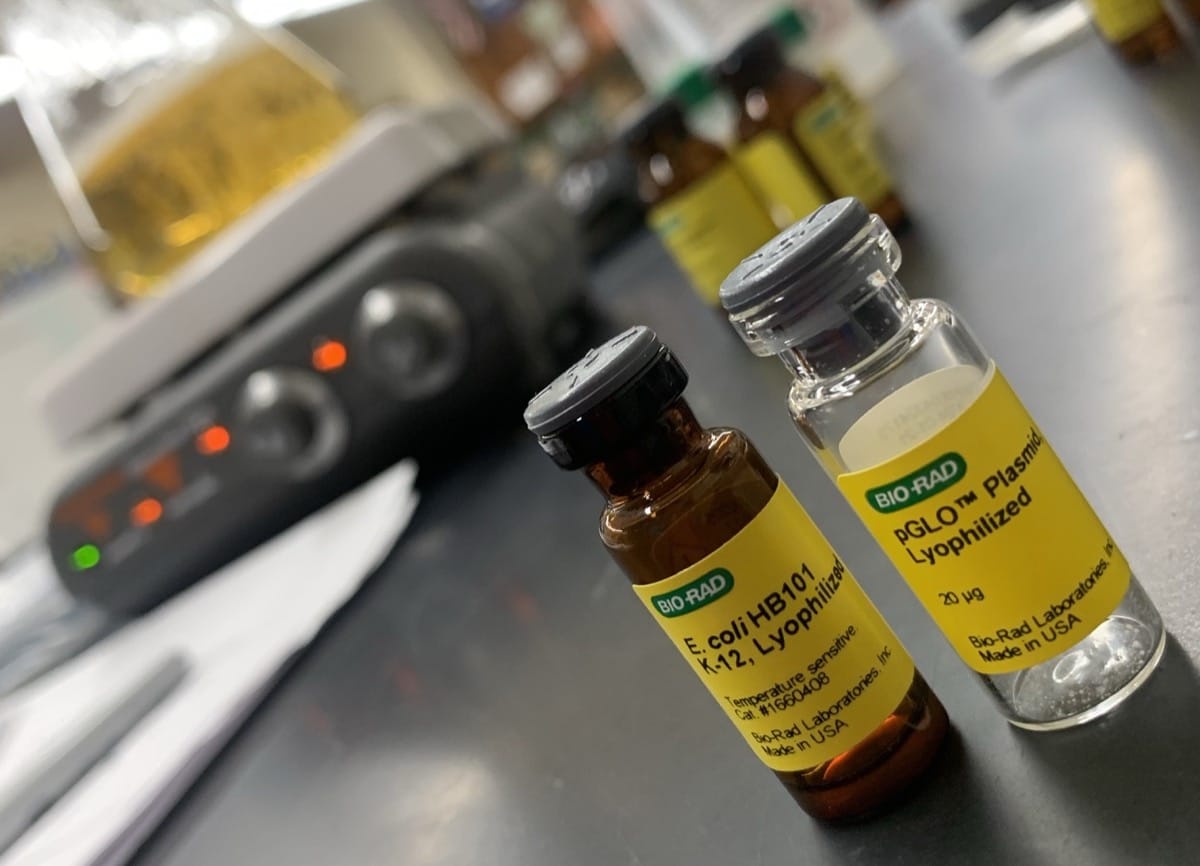
Learning involves information, action, and understanding. Erin Molden of Kettering Fairmont High School recently used a bacterial transformation lesson from Ohio Corn & Wheat-sponsored Feed the World to challenge the learning of her junior and senior Biotechnology students.


Before starting the lab, Molden met with her students on a Zoom meeting. She charged them with the task of answering three questions:
- What is Bacterial Transformation?
- How is Bacterial Transformation performed and what equipment/reagents are needed
- How is Bacterial Transformation used in the Biotechnology industry?
“This is one of my favorite activities to do during the year,” Molden said. “It essentially allows the students to take charge of their learning. I give them about 10 minutes to research online before bringing them back for a group discussion. I served as the scribe and allowed my students to work through the process. It never fails that my students will first give me a textbook definition of bacterial transformation. When I press and ask them to further explain, they struggle at first. I want them to learn what to do when they don’t know what to do or what the answer is.”
Molden then talked with the students about how they could further research what the textbook definition means. “Eventually we come to an understanding of new terms, techniques, and a general idea of what we will be doing in the lab. They understand why we use certain reagents and the biology behind the process of bacterial transformation.”
Molden said her students tend to respond positively to this activity. “They aren’t sure what to expect and in the end they have a great scientific discussion. My ah-ha moment came when I tried this a couple years ago for this lab and my students loved it. Each year I think that this discussion might not go well and my students always come through!”
“My goal as a biotechnology teacher is to facilitate the learning of my students,” said Molden. “Bacterial transformation is a foundational skill and experience that my students need to have prior to graduation. Using the bacterial transformation lab sets my students up to learn more biotechnology skills. We will keep our transformed bacterial cells and use them to reisolate the plasmid and measure DNA concentration, make glycerol stocks for storage, isolate and analyze the GFP protein, and design experiments that will test variables to improve our transformation efficiency. This lab is merely a starting point for future learning for my students.”
Molden participated in last summer’s online Feed the World workshop, and she found the workshop to be “an asset to myself and other teachers. I appreciate that I am able to work through curriculum and experiments while working with other educators. I am able to see what questions and stumbling blocks happen outside of my classroom. I see how other teachers approach a solution, and I can share my experiences that hopefully help others as well. The collaboration with my colleagues is invaluable and helps me to improve my effectiveness in the classroom.”
Be sure to watch our newsletter and social media for information about this summer’s 2-day workshop!